We’ve recently sat down with Jordan, our master locksmith, to get a better understanding of what master locksmiths are, and to hear his take on some of the most frequently asked security key questions. Door locks and physical security is a vast topic, so this brief installment where our in-house locksmithing expert shares his knowledge on the subject, could be the first of many.
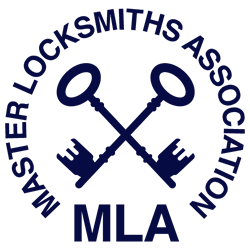
Q: What is a master locksmith?
A: As a trade, locksmithing is unregulated so there is no formal procedure to follow or qualification to gain to be able to call yourself a locksmith, however the MLA do try to regulate the term ‘master locksmith’. We would always suggest using an MLA approved locksmith who has passed their training course, and a standard DBS check, who is vetted and works to their high standards of quality and professionalism.
Locksmiths can be separated into two main groups – external locksmiths and bench locksmiths. External locksmiths focus on installation, on-site repairs, gaining entry and security improvement surveys. They also cover any emergency locksmith work. Bench locksmithing provides a key duplication service, and master key system creation and management.
Q: How to train to be a locksmith?
A: The MLA, Master Locksmiths Association, is the largest governing body of locksmiths and is recognised by the government. My MLA certification to become a master locksmith was gained by passing four practical exams plus one written exam. As a successful MLA locksmith, I’m checked and vetted by them every two years to ensure standards are being maintained. The MLA cover both external and bench locksmithing so their website is a great place to look for in-depth information.
Q: Do locksmiths have to be licensed?
A: In a word, no. There are no specific regulatory criteria in order to trade as a locksmith.
If you are interested to know how do you register as a locksmith, then there are various bodies that you can register with, some of them provide training and their own certification, but there is no compulsory qualification or certification.
At Door Controls Direct, we chose the MLA as they maintain high standards that embody our own company values. I’m an MLA certified and vetted master locksmith with 13 years of experience, and as a company, Door Controls Direct is an approved MLA company member.
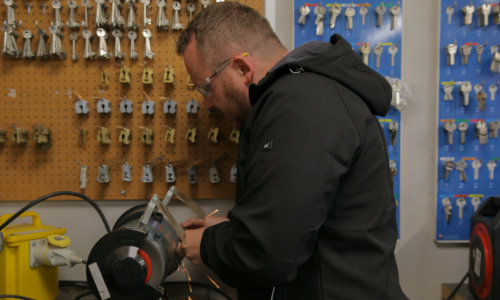
Q: What is a master key system?
A: In its basic format, a master key system is a group of locks, each suited with its own key and an overarching master key that opens all locks.
A master key door lock system is different from a keyed alike system, which is a group of locks which all operate by the same key but there is no key hierarchy, just one key which opens all the cylinder locks.
We can generate master key systems to complex specifications that are suitable for multi-building and multi-site applications. This can involve adding another level of key, a submaster, and it can include groups of keyed alike cylinders within the master key system.
Q: How do master keys work?
A: Master keys are the highest level of key on a master keyed lock system. Exactly how these keys work can depend on the Brand of cylinder and key. As an example, Kaba employs multi-profile master key systems whereas many other brands supply a single profile key system, where the master keys have different cuts from the differ keys.
In asking how does a master key work, the difference is usually found in the individual internal assembly of the cylinders within a master key system, rather than there being a marked difference in appearance of the master key. Master keys are no longer skeleton keys with a pared back appearance. They will still open all locks on a system but the internal pins and master wafers within the cylinder housing dictate which keys will activate the lock. The master keys will look physically similar to any differ key, which typically only operates one lock, on the same lock suite.
Q: What is a security key?
A: A security key is commonly used as a generic term for a key that is restricted in some way. In-house, we’d classify a security key as something that requires written authorisation to be cut or has an authorised signatory.
However, interpretations of this phrase do vary, and some people call an open section key a security key, which can be cut anywhere, such as a standard 5-pin cylinder key.
Often, our customers will refer to their master keys as security keys, so another question is what is a master key? For me, master keys would fall under the classification of a restricted key. Master keys are a control key that opens every door/cylinder on a designated system. Other keys within a restricted master key system, such as submaster or differ keys, are also referred to as security keys, as can a standalone restricted cylinder and key that you’d find on a domestic property.
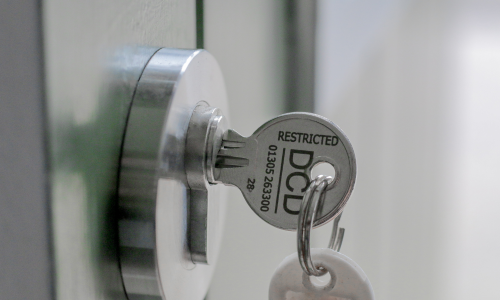
Q: What is a restricted key?
A: This is down to terminology. A restricted key is effectively a security key.
There are some restrictions that can be imposed by the manufacturer. They have:
• Dealer restriction – some brands will only supply through selected dealers/distributors.
• Restricted profiles/sections - large buildings/customers have their own unique key section, with restricted supply of key blanks.
• Supplier restriction – additional cylinders and keys can only be provided by the system originator.
Then there are customer specific restrictions. In-house we encourage:
• Registered key systems - a signatory, assigned person or specified email address in order to process requests for additional security keys and master keyed cylinders.
This includes major brands such as Access2, Assa, Ruko, Evva, Kaba, Iseo and Eurospec.
Q: How to duplicate a key?
A: There are two main ways to duplicate a key – by code or by copy.
With unrestricted, non-security keys, they will usually require being cut by copy. This means a physical key will need to be provided in order to cut duplicate keys from the pattern of the existing key.
Copying restricted keys can be done by code. We stamp restricted keys with a system number then any unique identifier codes which denote whether it is a master key or a differ key, or which door number the key operates. These codes are checked against our system then I enter the codes into one of the key cutting machines. As I’ve said, with restricted key cutting we’d require the order to come from a specified email address, or an order signed for or raised by a signatory or authorised person.
Some non-security keys, such as locker keys and cabinet keys, can also be cut by code rather than by copy.
In this Q&A session we have only touched the surface of some of the most frequently asked questions around security keys, master keys and master key systems. So, if you need some advice on a new or existing master key system, or guidance on how to get duplicate security keys then get in touch with our locksmith today: [email protected] or 01305 263300.





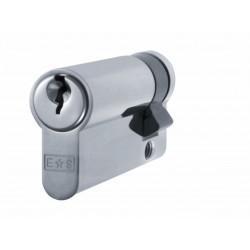
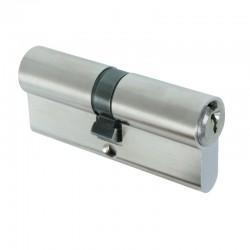
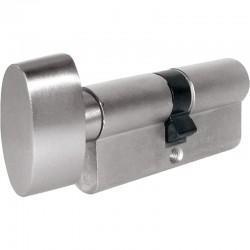
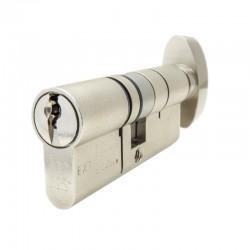
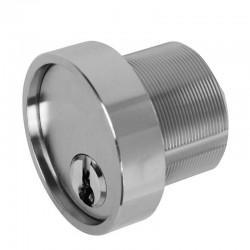
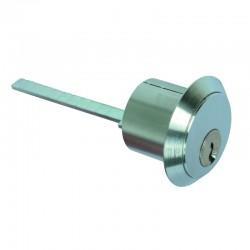





Comments